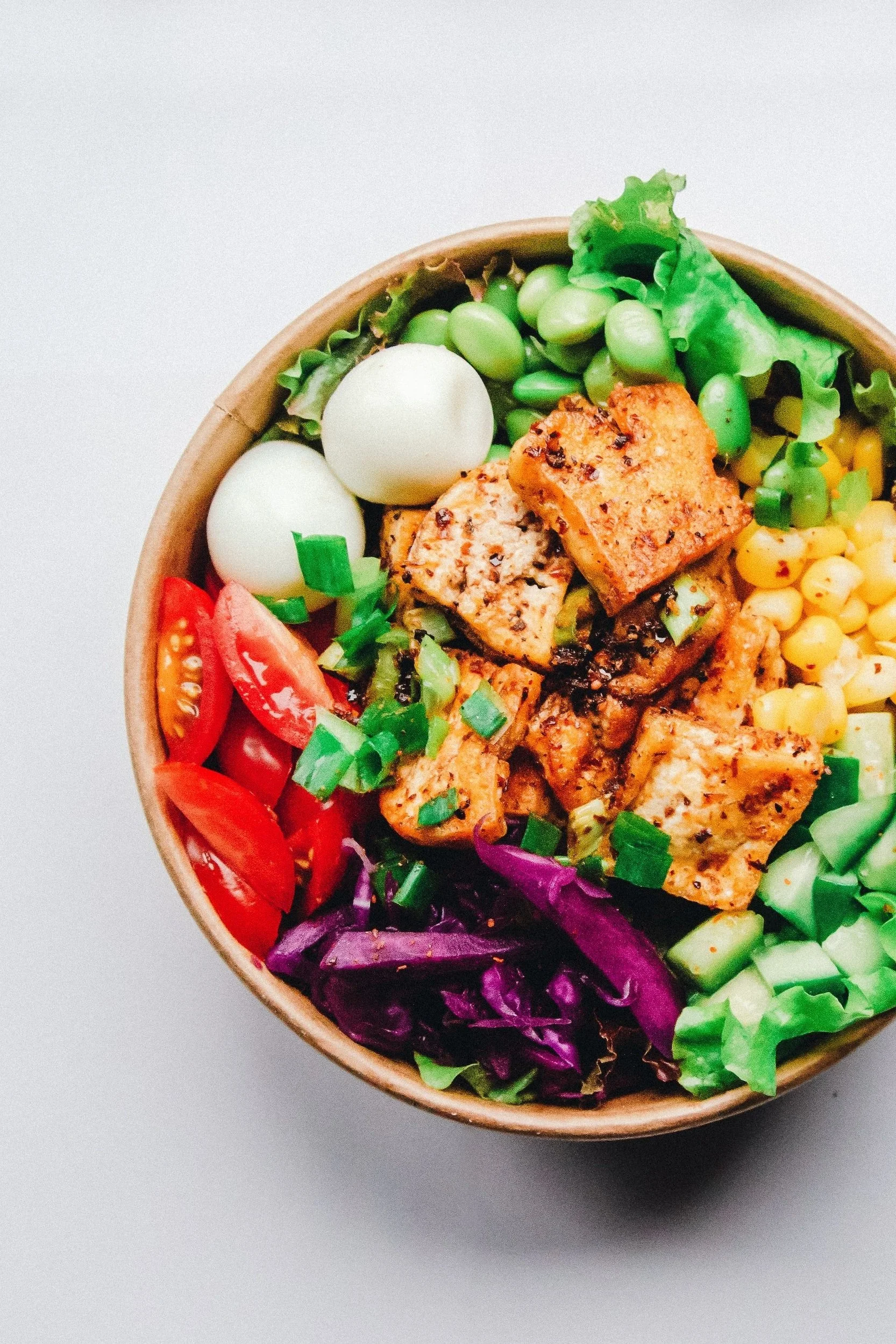5 Shifts to Reduce Chronic Inflammation
Inflammation is a bit of a buzzword in the health and wellness industries these days, but what is it and why do our bodies do it? It’s a natural process as a result of injury or infection in the body meant to fight off pathogens and heal injuries. The problem is when it becomes chronic… Long term chronic inflammation is strongly linked to issues many people experience later in life including diabetes, Alzheimer’s, heart disease, cancer, and autoimmune disorders. A lot of the symptoms of chronic inflammation we experience earlier in life are things like joint soreness, chronic fatigue/insomnia, or mood disorders like depression and anxiety (just to name a few). The most frustrating part of all of this? These are all symptoms that we’re told are “normal” to experience at this age, which I guess in the context of the American Lifestyle they are, but they shouldn’t be.
So what can we do?
1. Swap out sugary drinks
We’ve all seen the can of coke sitting next to the baggie of sugar depicting how much sugar is in that can, but why doesn’t it phase us? Probably because it’s rarely also sitting next to a baggie with the suggested daily intake for sugar. This will vary based on your body and goals, but the general rule written by the American Heart Association is no more than 24g/day. Want to guess what’s in a can of soda?
So how does sugar cause inflammation?
When there is sugar in your blood stream, proteins and lipids combine with it to form Advanced Glycation End Products or AGEs (I know, stay with me here..). Normally your body can eliminate these naturally, but when too many build up or are formed at once the body can’t handle it and it causes oxidative stress and inflammation.
If you think about the Standard American Diet and what people consume in a day you can start with coffee with some sort of sweetener, possibly some cereal, a donut or chocolate croissant for breakfast. Maybe a cookie (or 3) with lunch or as a mid afternoon snack. If you’re really getting fancy your dinner might have a sweet and salty sauce that’s high in sugar (and who’s eating 2 tbsp of sauce with dinner? I know I’m not!). And ice cream for dessert.
This is a great example of a diet that would result in too many AGEs.
2. Reduce Refined Carbohydrate Intake
Refined carbohydrates are another culprit that can lead to chronic inflammation. They include white bread, pasta, and rice to name a few. What makes it refined? Because it’s white, it’s been stripped of fiber and nutrients so you’re left with white flour, maybe some yeast, but that’s about it. These foods are quickly absorbed into the bloodstream, causing a spike in blood sugar levels and insulin release. Over time, this can lead to insulin resistance and chronic inflammation.
When consuming foods that are higher in calories, you want to reach for ones that are more nutrient dense so you’re feeding your cells what they need in order to thrive.
This doesn’t mean you have to cut these out altogether, but try to mix in more whole grains (not multi grain, but we’ll get into why another day). If you opt for whole grains like brown rice, quinoa, and whole-grain bread, you get more bang for your buck. Instead of feeding your body food that can hurt it, you’re feeding it food that helps it to thrive. Whole grains contain fiber and nutrients that slow down the absorption of sugar into the bloodstream, reducing the risk of chronic inflammation.
3. Wake Up Peacefully
Starting your day off slowly and quietly can keep cortisol levels at bay, and set a happier tone for the day. A blaring alarm that jolts you out of your sleep may feel necessary for anyone who’s a deep sleeper but it also sends your body into a state of danger which causes your adrenals to secrete the stress hormone cortisol. I always suggest people use an alarm that wakes you up gradually, something that starts low and gets louder as time goes on. And if you’re getting up before the sun swap out bright lights for lower light so you can allow your body to move into an awake state stress free.
Other suggestions: aim to get seven to nine hours of sleep per night. Make sure to create a relaxing sleep environment, such as keeping the room cool and dark, and avoiding screens before bedtime. In the morning, avoid checking your email or social media first thing. Instead, take some time to meditate, stretch, or read a book to start your day in a calm and peaceful state.
4. Eat Anti-Inflammatory Foods
One of my favorite descriptions for people is to “eat the rainbow” aka get as many colors into your diet as you can.
On top of that, certain foods have anti-inflammatory properties that can help reduce chronic inflammation. These foods include fruits and vegetables, fatty fish, nuts and seeds, and spices like turmeric and ginger.
Fruits and vegetables are rich in antioxidants and fiber, which can help reduce inflammation in the body. Fatty fish like salmon and sardines contain omega-3 fatty acids, which have anti-inflammatory properties. Nuts and seeds like almonds and chia seeds are also high in healthy fats and fiber, which at this point we know the benefits.
Spices like turmeric and ginger have powerful anti-inflammatory properties as well. Turmeric contains curcumin, which has been shown to reduce inflammation in the body. Ginger contains compounds called gingerols and shogaols, which both have anti-inflammatory properties.
If you think about all of the foods mentioned here and what they might look like on your plate, you’ve got quite the cornucopia of color. Not only are you fighting inflammation, you’re loading your cells with the micronutrients they crave.
5. Ditch the booze
A line from my favorite scene in Grace and Frankie (iykyk).
Drinking alcohol in excess can lead to chronic inflammation. Alcohol is a poison to our bodies so when we consume it, our body stops secondary functions to try and eliminate it as quickly as possible. Drinking can also increase the production of cytokines, which are inflammatory molecules. And as we all know, over time over-consumption of alcohol can cause liver issues.
To reduce chronic inflammation, it is best to limit alcohol consumption or ditch it altogether. If you do choose to drink, stick to one to two drinks per day and choose low-sugar options.
Want to talk more about inflammation? Shoot me an email, or DM me on Instagram. I’m always happy to answer your questions or keep the conversation going.
XO Hali





